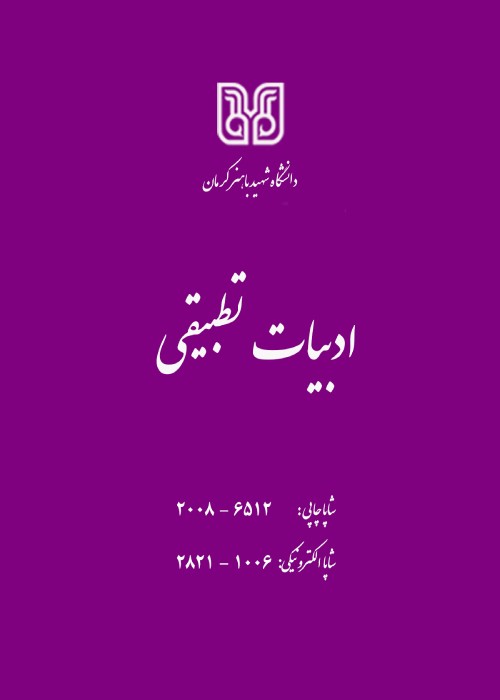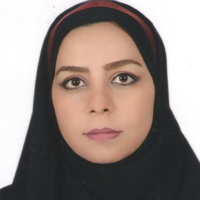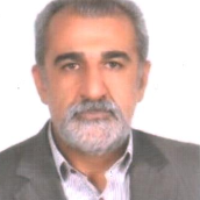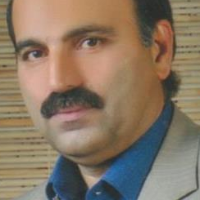A Comparative Study of Prayer from the viewpoint of Maulana and Catherine P0nder
Author(s):
Article Type:
Research/Original Article (دارای رتبه معتبر)
Abstract:
" Introduction"Prayer" means asking and it is one of the important religious rituals and according to the theories of the spirituals of the world, as one of the best ways to communicate with God and one of the highest worships. Since "prayer" plays an important role in the mental health of individuals, comparative research and studies in this field is a cognitive necessity and a way to create unity and peace in human society. The purpose of this descriptive-analytical article is to examine the comparison of prayer from the perspective of Rumi in the book Masnavi Manavi as a representative of Islamic mysticism with the views of Catherine Ponder in the book The Power of Prayer as a representative of Christian mysticism, regarding the similarities and differences of thought. The two mystics achieve a lasting result. The results of the research indicate that Ponder and Rumi share many aspects such as the necessity of sincerity and the divine grace of prayer, but the most important difference is in the nature of prayer. Because Rumi pays attention to spiritual matters in prayer and Ponder pays attention to material matters. It seems that by studying the ideas of Eastern and Western mystics, new aspects of reality can be achieved. 2.MethodologyThis research has been done by descriptive-analytical method and in it library studies and note taking have been used. The scope of this research is the book Masnavi Manavi by Maulana Jalaluddin Mohammad Balkhi, edited by Reynold Nicholson, Tehran, Toos Publications (1996) and 2 volumes of the book The Power of Prayer by Katherine Ponder, translated by Mina Azami, Tehran, Mitra Publishing (2008 and 2009) Is. But according to the word, other works of these two great mystics have also been used. In this research, first Rumi''s thoughts and opinions regarding prayer are expressed, then Ponder''s views on prayer are examined and while expressing the commonalities and differences between the two, the necessary conclusion is reached. 3.DiscussionIn the contemporary world, not only has religion and religious rites not been removed from people''s lives, but it has also found a new and decisive role in individual and social life and has caused many changes, including multidimensional attitudes towards religion in different societies. Although the prediction of the decline of religion and the gradual decline of religion in the age of scientific thought was first made by August Kent, the father of modern sociology, and later by many other nineteenth-century European social thinkers, the historical experience of modern human societies And attention resumed his religion and mysticism. (Seyyed Emami, 1997, p.141) As we see in the current world community "a wide wave of tendency to spirituality, in the form of a desire for ancient mystical beliefs" (Hassani Jalilian, 2020, p. 19) and the tendency to modern and emerging mysticism in the East and West.Throughout history, many mystics have addressed common ground. One of these topics is "prayer", which is one of the most fundamental topics for mystics all over the world. But in today''s modern world, it seems that praying from scriptures and prayers does not seem to be very effective for people because today people are looking for a newer way to communicate with their God. Catherine Ponder, one of the most famous Christian writers and priests in modern times, was one of the first to pay special attention to this. He has always emphasized the great power and power of prayer and he has always tried to lead people to establish a simple, sincere and intimate relationship with God.According to the theologians of the world, especially Islamic mystics, since prayer is a bridge between God and man, any kind of prayer is valuable, even if it is to meet the material and daily needs of human life. Maulana Jalaluddin Mohammad Balkhi, as one of the greatest mystics of the Islamic world, has valuable theories about prayer in his works, especially in the Masnavi Manavi. Catherine Ponder, a Christian pastor and author of The Power of Prayer, also describes the amazing power of prayer in her book and encourages her audience to have a pure and sincere relationship with God. Based on the intertextual views that most texts are influenced by each other, Pander is expected to be influenced by Rumi, but he does not explicitly name Rumi in his book, although many intellectual similarities can be seen in his work with Rumi. Given the importance of prayer in mystical texts, in this article, the intention is to pray and better understand and understand it in the two religions of Islam and Christianity, based on the theories of these two great thinkers - Rumi and Catherine Ponder.And while enumerating the main components of prayer from the perspective of these two great mystics and mentioning the points of inequality and sharing views, the angles of this matter should be shown better and more accurately. Basically, it should be noted that the ideas and findings of many seekers and mystics in all parts of the world are very similar and sharings. Perhaps it can be said that this similarity is the reason why the great mystics and seekers of the world have achieved transcendental and transcendental experiences and have been able to make observations that the ordinary senses are not able to receive. (Behnamfar and Khoshaman, 2010, p. 5) In case of encountering principles with religious phenomena and studying and comparing different religions and mystics of the world with a scholarly and far from purpose view, many political, sectarian, military and ... Will go and human societies will prosper in more peace. When people around the world have the same cultural ties, "this stronger bond prevents nations from distancing or even fighting for political or economic gain." (Otto, 2018: 13) 4.ConclusionPrayer has a special place from both Ponder''s and Rumi''s point of view. Despite the many similarities between these two mystics in the matter of prayer, there are some differences between them in this regard. Because Ponder''s language and prose are so simple and fluent, she has been very successful in attracting a contemporary audience. Catherine Ponder takes a fresh and modern look at the issue of prayer, calling it a simple human connection to her God. She expresses prayer in the form of emphatic phrases and in very fluent ways, using words that are completely modern and in accordance with the needs of contemporary man, and believes that if these emphatic phrases are recited with sincerity and according to special circumstances, the answer will undoubtedly be answered. They will be. In general, the differences between Rumi and Pander can be summarized as follows: the way of praying, the rules and stages of prayer, the change or non-change of all things by prayer, the focus on spiritual issues by Rumi and worldly issues by Pander, the reasons for not answering prayer . Common points and similarities between Ponder and Rumi''s view of prayer include: the need for sincerity in prayer, the need to destroy the human will in the will of God during prayer, the will of God and the divine grace of prayer, the need for perseverance in prayer and ... Cited. Considering these cases, in a comparative comparison between Rumi and Ponder, we find that in general, the similarities in Rumi and Ponder''s views on prayer are basically more than the differences and distinctions between the two.
Keywords:
Language:
Persian
Published:
Journal of Comparative Literature, Volume:13 Issue: 25, 2022
Pages:
285 to 310
magiran.com/p2400863
دانلود و مطالعه متن این مقاله با یکی از روشهای زیر امکان پذیر است:
اشتراک شخصی
با عضویت و پرداخت آنلاین حق اشتراک یکساله به مبلغ 1,390,000ريال میتوانید 70 عنوان مطلب دانلود کنید!
اشتراک سازمانی
به کتابخانه دانشگاه یا محل کار خود پیشنهاد کنید تا اشتراک سازمانی این پایگاه را برای دسترسی نامحدود همه کاربران به متن مطالب تهیه نمایند!
توجه!
- حق عضویت دریافتی صرف حمایت از نشریات عضو و نگهداری، تکمیل و توسعه مگیران میشود.
- پرداخت حق اشتراک و دانلود مقالات اجازه بازنشر آن در سایر رسانههای چاپی و دیجیتال را به کاربر نمیدهد.
In order to view content subscription is required
Personal subscription
Subscribe magiran.com for 70 € euros via PayPal and download 70 articles during a year.
Organization subscription
Please contact us to subscribe your university or library for unlimited access!






